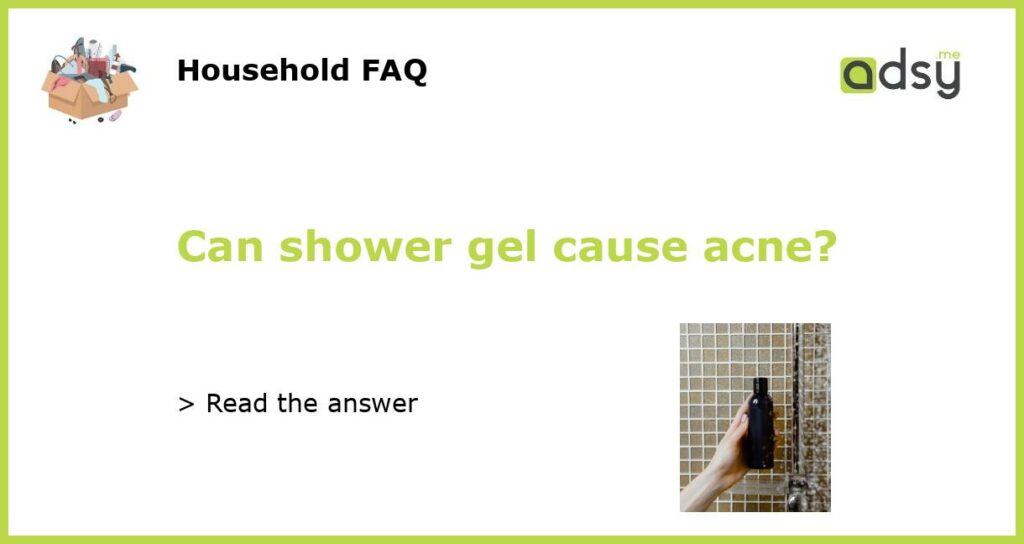Can shower gel cause acne?
As we strive for clear and healthy skin, it’s important to evaluate the products we use on a daily basis. Shower gel is a staple in many people’s skincare routine, but could it be causing acne? Acne is a common skin condition characterized by pimples, blackheads, and whiteheads. While shower gel is not a direct cause of acne, certain ingredients and formulations can exacerbate the condition. In this article, we will explore the potential link between shower gel and acne, and provide tips on how to choose the right shower gel for acne-prone skin.
Understanding acne and its causes
Before delving into the relationship between shower gel and acne, it is important to understand the causes of acne. Acne is primarily caused by the overproduction of sebum, an oily substance that lubricates the skin. This excess sebum can clog pores, leading to the formation of acne. Other factors that contribute to acne include hormonal changes, bacteria, and inflammation.
Potential irritants in shower gel
While shower gel itself is not a direct cause of acne, certain ingredients commonly found in shower gels can irritate the skin and potentially worsen acne. These ingredients include fragrances, dyes, and harsh surfactants.
Fragrances: Many shower gels contain artificial fragrances that can irritate sensitive skin. These fragrances are often made up of numerous chemicals, some of which can clog pores and trigger inflammation. Opting for fragrance-free or naturally scented shower gels can be a better choice for those with acne-prone skin.
Dyes: Brightly colored shower gels often contain synthetic dyes, which can cause skin irritation. These dyes may also clog pores and lead to breakouts. Choosing a shower gel without added dyes can help minimize the risk of worsening acne.
Harsh surfactants: Surfactants are the ingredients responsible for creating lather in shower gels. While lather can make us feel clean, certain surfactants can be too harsh for the skin and strip away its natural oils. This can lead to increased sebum production and potentially worsen acne. Look for shower gels that contain mild surfactants or are specifically formulated for sensitive skin.
Choosing the right shower gel for acne-prone skin
When choosing a shower gel for acne-prone skin, it is essential to opt for products that are gentle and non-comedogenic, meaning they will not clog pores. Here are some tips to keep in mind:
1. Look for gentle cleansers: Choose shower gels that contain mild cleansers, such as glycerin or plant-based ingredients like aloe vera. These ingredients help cleanse the skin without stripping away its natural oils.
2. Avoid comedogenic ingredients: Check the ingredient list for comedogenic ingredients that have a high likelihood of clogging pores. Some common comedogenic ingredients include coconut oil, cocoa butter, and lanolin.
3. Opt for fragrance-free options: Fragrances can be a common irritant for acne-prone skin. Look for shower gels that are fragrance-free or use natural essential oils for scent.
4. Consider pH-balanced formulas: The skin’s natural pH is slightly acidic, around 5.5. Using a shower gel with a similar pH can help maintain the skin’s natural balance and prevent excessive dryness or oiliness.
While shower gel itself is not a direct cause of acne, certain ingredients and formulations can worsen the condition. To minimize the risk of aggravating acne, choose shower gels that are gentle, non-comedogenic, and free of irritants like fragrances and dyes. Remember to consider your skin’s specific needs and opt for products that suit your individual circumstances. Consulting with a dermatologist can also provide valuable guidance in selecting the right shower gel for acne-prone skin.






